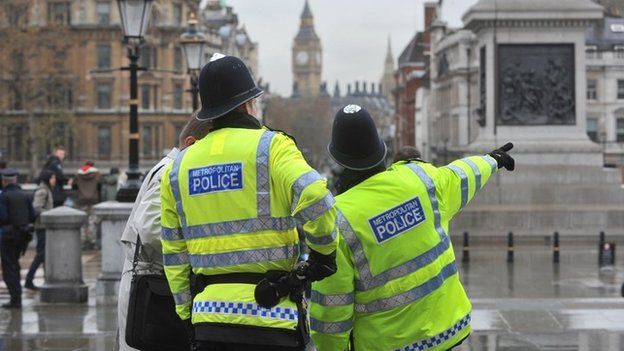By James Simons-
Police Forces in the Uk have bene told to reduce the harm caused by its stop and search may “recognize the effects of disproportionality on people and communities” but “don’t take this matter seriously enough”, an investigation into the use of so-called suspicion-less section 60 stop and search powers concluded.
The probe was carried out by His Majesty’s Inspectorate of Constabulary and Fire & Rescue Services (HMICFRS), the Independent Office for Police Conduct (IOPC) and the College of Policing (CoP) after campaign network the Criminal Justice Alliance (CJA) submitted a super-complaint amid concerns about the use of the powers.
The report, compiled by His Majesty’s Inspectorate of Constabulary and Fire and Rescue Services (HMICFRS), the College of Policing, and the Independent Office for Police Conduct (IOPC), urges law enforcement agencies to apply safeguards and enhance scrutiny when exercising stop and search powers.
The super-complaint raised alarm about the disproportionate impact on black individuals, who were found to be 18 times more likely to be subjected to these powers.
The report reveals a deeply concerning failure to adhere comprehensively to legal, best practice, and training frameworks, prompting a call for reforms in stop and search procedures.
The report emphasizes that existing safeguards, such as the College of Policing’s authorised professional practice and the National Police Chiefs’ Council’s (NPCC) guidance on body-worn video, are not consistently applied.
Concerning examples were found where these safeguards were neglected, demanding urgent attention from law enforcement agencies.
The report calls for comprehensive training on section 60, as many officers responsible for authorizing the power and those conducting the searches do not receive adequate training, as stipulated by the national police curriculum requirements.
Under the Criminal Justice and Public Order Act 1994, a section 60 authorises police to stop and search people and vehicles, without suspicion, for offensive weapons or “instruments” considered dangerous in a specific neighbourhood of the force area for a set period.
The CJA – a 170-strong body of groups which campaigns for a fair and effective criminal justice system – made use of the Government’s super-complaint system which allows organisations to raise concerns on behalf of the public about “harmful patterns or trends in policing”.
The investigation “confirms that people from ethnic minority backgrounds are more likely to be stopped and searched under section 60” but “none of the forces that investigators engaged with could fully explain why”, the three watchdogs said.
The report also highlights the need for effective communication between law enforcement and communities regarding the use of section 60 stop and search powers. It calls for the recording and scrutiny of briefings on section 60 operations.
Expressing serious concerns about the insufficient safeguarding of children during section 60 searches, the report recommends that all officers understand and comply with their responsibility to safeguard children who are stopped and searched.
Community Scrutiny Panels: The report recommends improving the working relationship between law enforcement agencies and community scrutiny panels, emphasizing the importance of including individuals affected by stop and search. It suggests providing appropriate training and support to panel members.
Response from Investigative Bodies
HMICFRS: Wendy Williams, His Majesty’s Inspector of Constabulary, highlighted the importance of using section 60 stop and search legitimately, proportionately, and fairly. She stressed the need to ensure forces only use the power when necessary, use it effectively, and evaluate its use.
IOPC: Kathie Cashell, IOPC acting deputy director general, acknowledged that stop and search, including ‘suspicion-less’ stop and search under section 60, is essential for policing but also emphasized its intrusive nature.
She urged the police to apply existing safeguards and effective community scrutiny to minimize harm when stop and search is used.
Andy Walker, head of uniformed policing at the College of Policing, stressed the importance of applying lawful, proportionate, and fair principles in using stop and search powers.
The College will review and update the stop and search national policing curriculum to support policing in applying these principles.
Criminal Justice Alliance’s Perspective
The Criminal Justice Alliance sees the HMICFRS report as a significant milestone in the ongoing conversation about stop and search practices. While acknowledging the report’s recognition of failures in policing practices, the alliance maintains its stance that section 60 and the escalated use of stop and search cause more harm than good.
Annette So, interim director at the Criminal Justice Alliance, emphasized the need to invest in tackling the root causes of crime rather than enforcing sweeping, draconian powers like section 60. The alliance will continue to call for the repeal of section 60 and a comprehensive review of its effectiveness.
The report raises concerns about the intersection between child safeguarding and race, urging a review of existing protections. It suggests better use of the Public Sector Equality Duty (PSED) and Equality Impact Assessments (EQIAs) to address racial disparities.
Desmond Brown, Criminal Justice Alliance race disparity expert group member, highlighted the urgency of addressing the lived reality of black and brown communities, emphasizing that the continued use of section 60 disproportionately exposes these sections of British communities to more harm than good.

